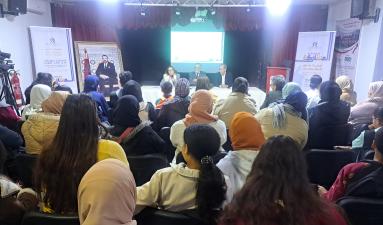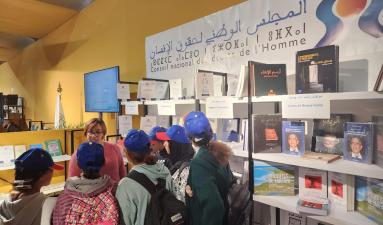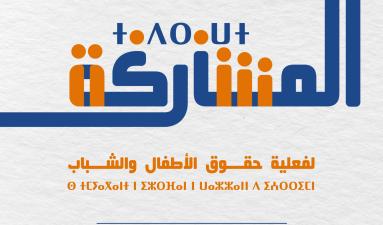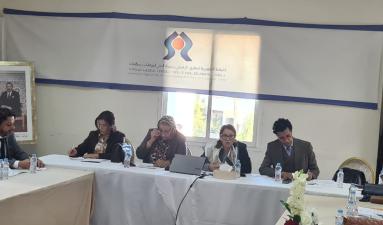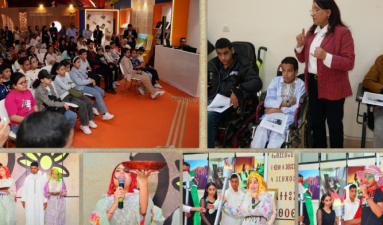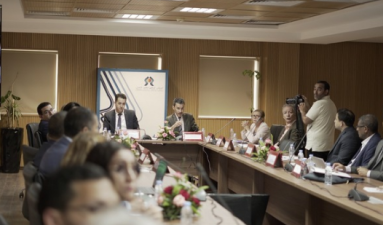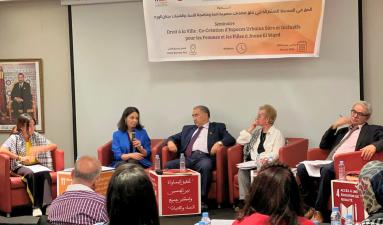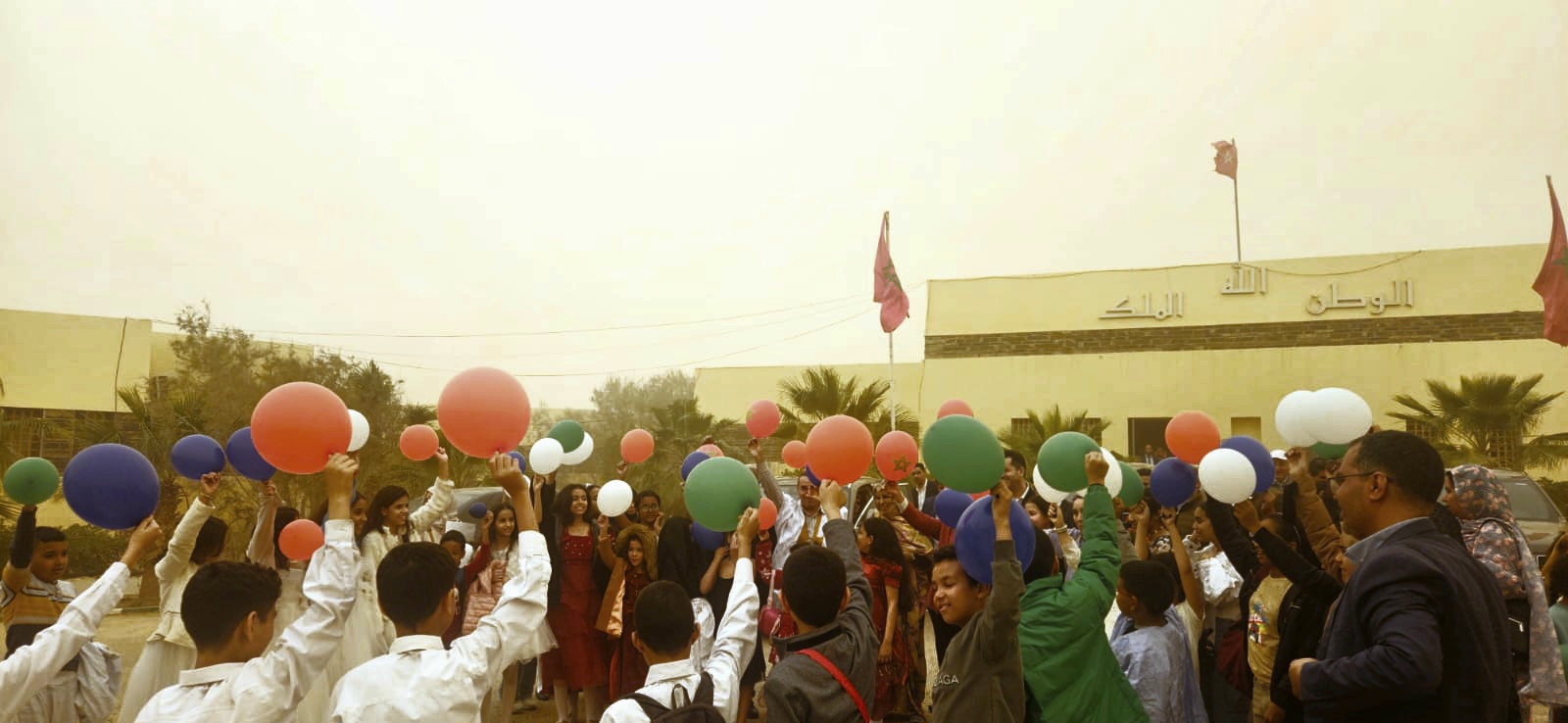
Ms. Amina Bouayach, Chairperson of the National Human Rights Council (CNDH), emphasized that children across Morocco’s twelve regions played a fundamental role in fostering the principle of participation. She highlighted this initiative as a best practice and a pioneering experience, not only in Africa but worldwide. This experience deserves further development and protection. Those children participated actively in public matters aspiring to enjoy a peaceful and secure childhood, free from the impacts of wars, violence and hatred.
With these words, CNDH Chairperson wrapped up the regional consultations with children on Saturday 24 February 2024, in the twelfth station in Es-Smara, in Laayoune-Sakia El Hamra Region, Morocco. She launched these consultations in Guelmim, Morocco in February 2023 with the view to institutionalize the principle of children’s participation.
At the opening session of this event, Ms. Bouayach underscored the symbolic significance of selecting Es-Smara to conclude these consultations. The city, deeply rooted in knowledge and resilience, holds symbolic importance due to its unwavering resistance, commitment to preserving its identity, and defense of territorial unity. Es-smara endured challenging historical experiences before regaining its homeland in 1976.
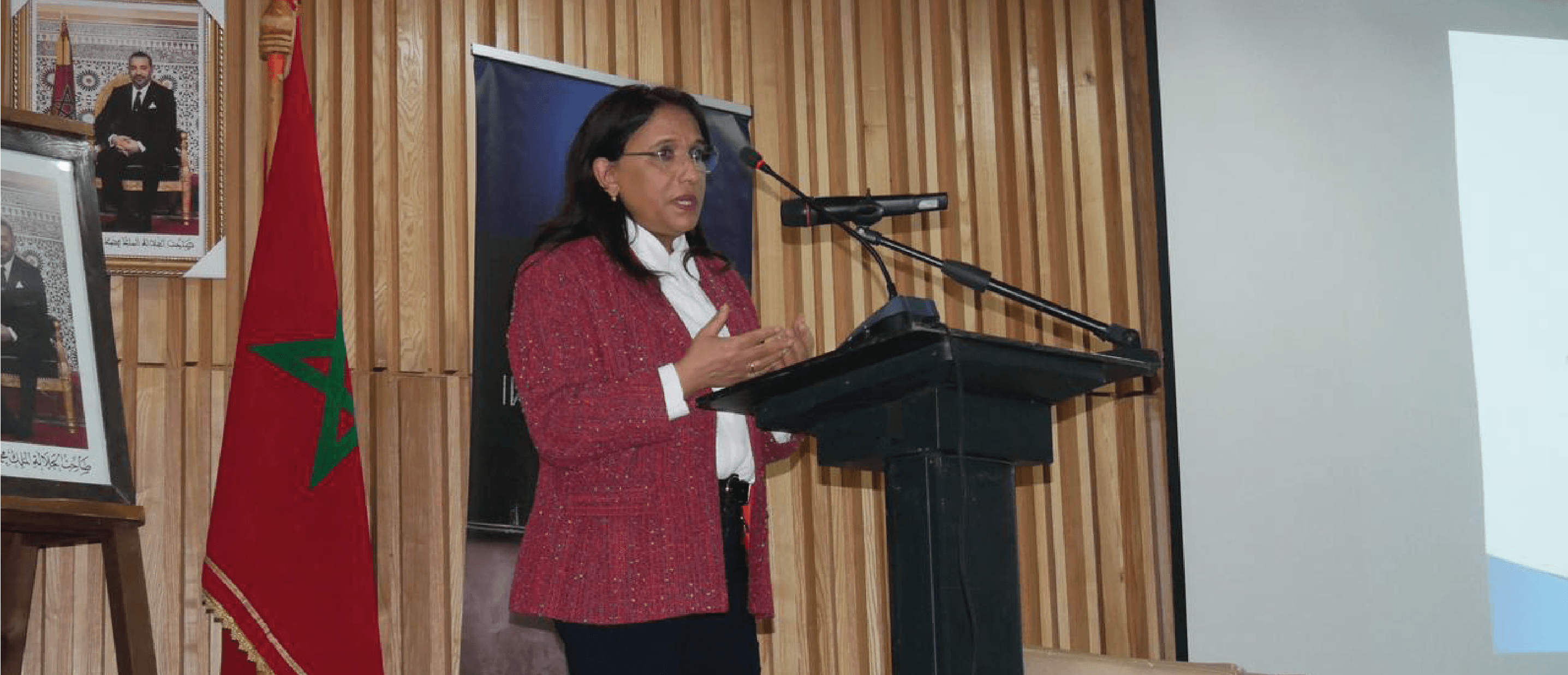
Stakeholders including local authorities, President of CNDH's Regional Commission in the Laayoune-Sakia El Hamra region, and coordinator of the National Child Redress Mechanism participated in this consultation.
Within the same context, Ms. Bouayach affirmed that the Council's objective is to institutionalize the principle of children’s participation, meaning to legally stipulate it and prepare a report that will be drafted by children after the national consultation in the coming weeks. This report will be submitted to the United Nations Committee on the Rights of the Child in 2024 in Geneva. It is noteworthy that these consultations are recognized as a pioneering best practice, marking the first-of-its kind initiative at both the African and Arab levels.
Expressing satisfaction with the ongoing progress of these consultations, CNDH Chairperson highlighted that these meetings reflected genuine interest, maturity, and ability of children to assess public policy that impacts them, discuss laws related to their fundamental rights, and formulate practical and significant procedural recommendations.
Ms. Bouayach also added that this initiative provides a direct avenue for interaction with children on issues affecting them, such as “child marriage”. CNDH addresses this issue in alignment with the requirements of Articles 19 and 12 of the Convention on the Rights of the Child. These articles underscore the right to protection for children, principle of participation and obliging State parties to listen to their opinions during formulation, implementation and evaluation of public policies, as well as during the preparation of national legislation.
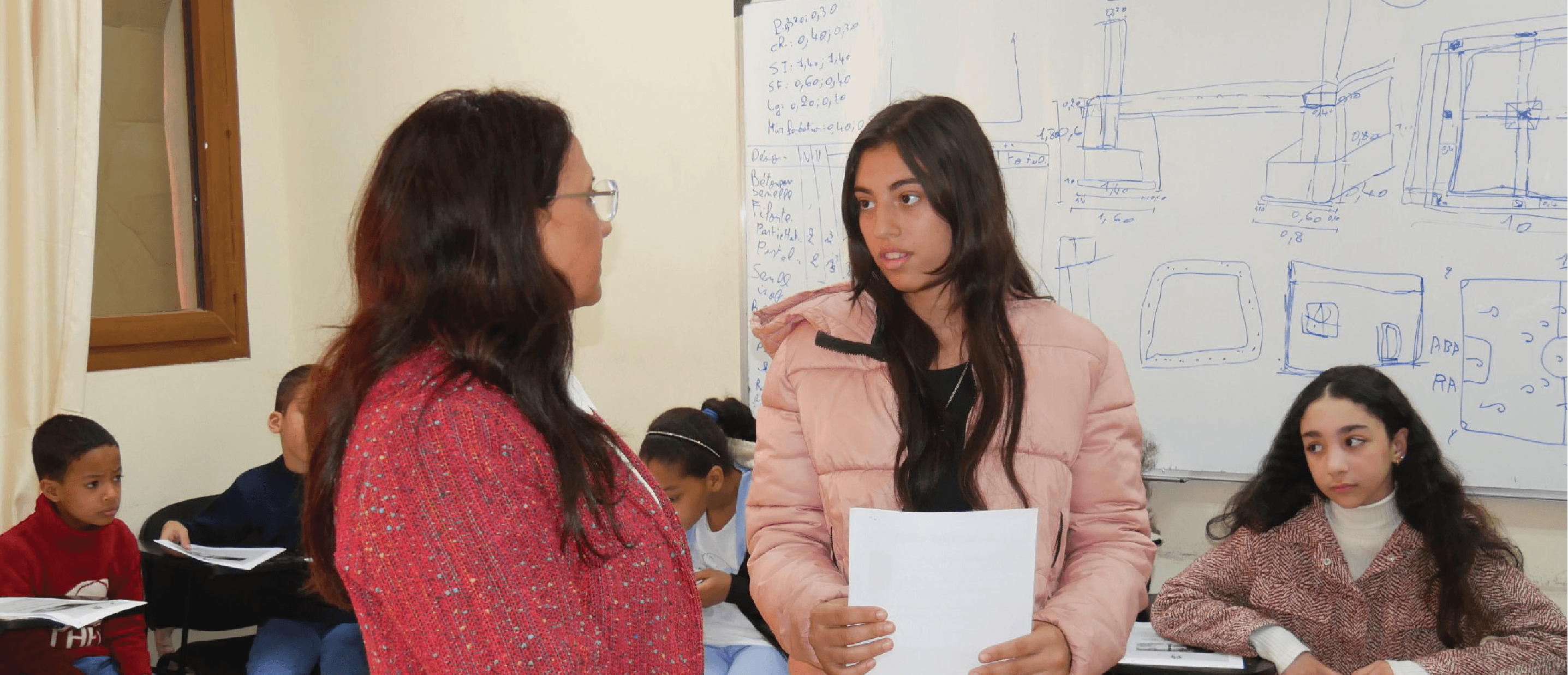
At this consultation, CNDH Chairperson interacted with children on the Family Code and its recent developments. Mr. Abdelkarim Alaazani, Coordinator of the National Child Redress Mechanism, also introduced the mechanism and its missions.
Over 30 children, representing all groups, boys and girls, from rural and urban regions, as well as children with disabilities, children in difficult and vulnerable situations, foreign children, etc. participated in this event.
This consultative meeting included three workshops on Public policy (covering health, education, justice, etc.), Protection (encompassing services, protection and redress bodies), and Access to information and participation.
This regional consultation with the children from the Laayoune-Sakia El Hamra region was preceded by a preparatory meeting for supervisors facilitating the workshops, aiming to familiarize them with the principles, tools and methodology necessary for conducting these workshops.
Children from the region organized a closing ceremony at the end of this regional consultation, during which they showcased paintings related to children’s rights, followed by releasing freedom balloons from the city of Es-Smara, Morocco.



